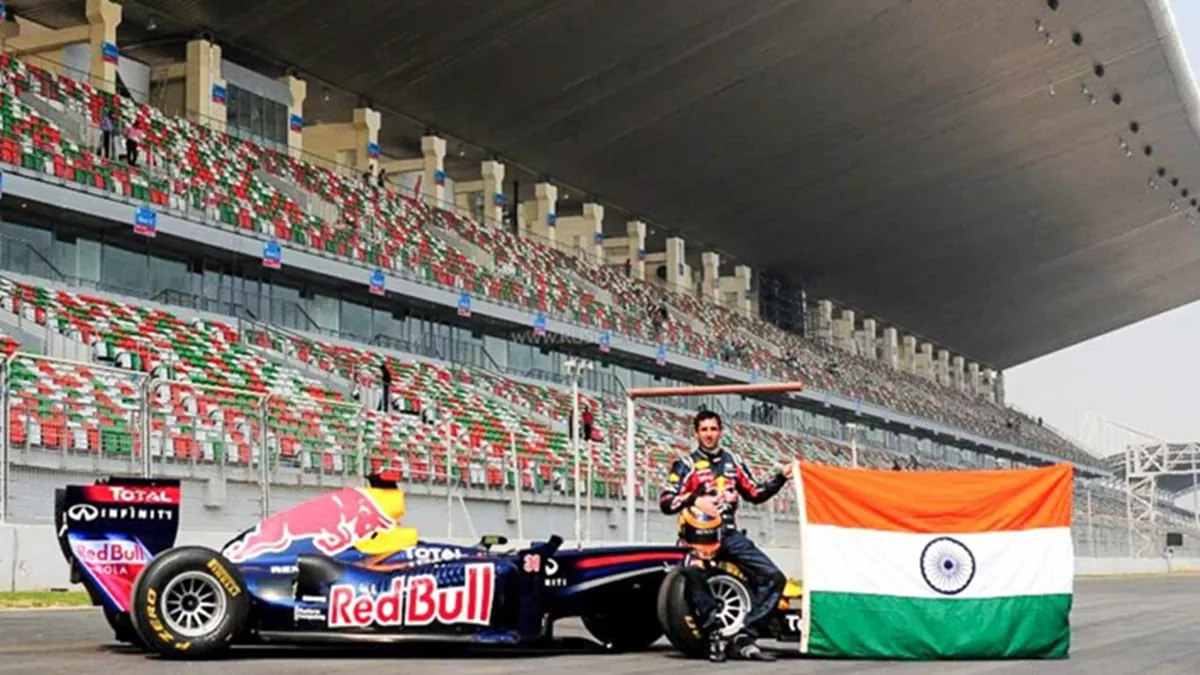- By Arjit Garg
- Mon, 30 Jun 2025 12:59 PM (IST)
- Source:JND
Let’s agree on one thing, the dream of driving a car, especially a racing machine, holds a deep emotional and cultural pull. It touches kids, energizes youth, and stays alive even in the hearts of the old. This fascination goes beyond age; it’s a universal feeling. As they grow, that dream matures.
For some, it’s about sitting behind the wheel, chasing speed. For others, it's the desire to understand and shape the complex engineering behind every curve and roar of a race car. Whether driving or designing, motorsports enthusiasts channel their passion into action.
From local karting tracks to world-class circuits, young aspirants fuel their ambition through purpose and precision. And leading the way are training programs that recognize this unstoppable drive, like the Ferrari Driver Academy, Sauber Academy, and United Motorsports Academy; institutions built to turn raw passion into refined performance.
Reengineering Motorsport
As someone who has spent the better part of a decade immersed in the world of motorsport, at our academy, where I work closely with young engineers, we’ve embedded a project-driven mindset into our motorsport engineering training.
From race car setup and telemetry analysis to vehicle dynamics and simulation tools, every module is interconnected. Students learn to operate under real-time pressure, collaborate across technical domains, and extract insights from data.
These experiences don’t prepare them for just one job; they equip them to adapt across the evolving landscape of performance engineering, and in engineering workshops, I’ve seen firsthand both the raw potential and the deep-rooted challenges that define the sport in India.
Every time I mentor a young student through a live race simulation or help an aspiring engineer fine-tune data, I’m reminded that motorsport isn’t just about speed. It’s a mirror for precision thinking, technical collaboration, and human performance. Yet, in India, the sport still struggles to find its footing.
In 2025, we’re past the point of just acknowledging what's broken. It’s time we rebuild from the ground up and not just for the sake of racing, but for the future of innovation, engineering, and youth ambition in India.
A Legacy We’ve Yet to Honour
We’ve had our moments when Narain Karthikeyan and Karun Chandhok made it to Formula 1. The Indian Grand Prix brought global attention, if only for a short time. And now, drivers like Jehan Daruvala and Kush Maini are keeping that spark alive internationally.
But the reality at home is far less glamorous. Limited budgets, underutilised tracks, and the high cost of entry continue to make racing inaccessible for many. Young talent is everywhere, but opportunity isn’t.
Why We're Falling Behind
The biggest myth is that motorsport is only for drivers. What people don’t see is the ecosystem it demands: race engineers, vehicle dynamics experts, simulation analysts, data strategists, logistics managers, the list goes on.
Unfortunately, we don’t have the structures in place to nurture that ecosystem. There is no grassroots pipeline. Karting remains expensive and regionally siloed. Most kids are introduced to the sport far too late.
There’s limited integration with formal education. Despite our engineering prowess as a country, very few institutions even mention motorsport as a viable career path. The sport is seen as a luxury, not a skill-based discipline. That perception is costing us thousands of future jobs, startups, and innovations in the mobility sector.
What We’re Trying to Do Differently
I wanted to bridge the gap between raw passion and structured opportunity. At UMA, we’re creating race engineers, analysts, team strategists, and systems thinkers. We work with students from engineering colleges across India and expose them to real-time race scenarios, handling telemetry, performance tuning, pit strategy, and team coordination under pressure.
We also collaborate with global motorsport entities to give students a taste of what professional-level motorsport looks like—not just in theory, but in practice.
One of the most powerful outcomes? Students start to see motorsport as a legitimate career path. And companies, especially in EV, robotics, and performance engineering, start seeing them as high-value talent.
What Needs to Change at Scale
We’re a small piece of the puzzle. If we’re serious about building a motorsport culture in India, here’s what needs to happen:
1. Invest in Grassroots Racing: We need public-private initiatives that create access points for the young talent community; karting circuits, school-based motorsport clubs, and regional tournaments. Motorsport should be part of the extracurricular fabric, not an elite exception.
2. Embed Motorsport in STEM Education: Engineering colleges should integrate motorsport-specific modules, vehicle dynamics, motorsport analytics, and simulation-based learning. We should be building future F1 engineers as much as aspiring drivers.
3. Incentivise Corporate Sponsorship and R&D: Corporates must see motorsport as a platform for brand building, technology testing, and future talent engagement. Motorsport offers R&D potential in EVs, aerodynamics, material science, you name it.
Why This Matters Now?
The future of mobility, autonomous systems, EVs, and AI-integrated transport won’t be shaped in boardrooms alone. It’ll be shaped by engineers and designers who’ve had hands-on exposure to systems under pressure. There’s no better live lab than a racetrack.
Motorsport trains resilience. It trains rapid decision-making. It forces people to work cross-functionally. These aren’t niche skills, they're future-defining ones. India has the numbers, the intelligence, and the ambition.
What we lack is a roadmap. But if we act now, motorsport can become one of the most powerful platforms for applied education and global competitiveness. I’ve seen what happens when one student gets access to the right tools, mentors, and belief system, they become innovators.
And if we can multiply that effect across campuses, cities, and sectors, then India won’t just participate in the motorsport conversation, we’ll lead it.
Disclaimer: This article is authored by Omkar Rane, Founder, United Motorsports Academy. All views are personal.

